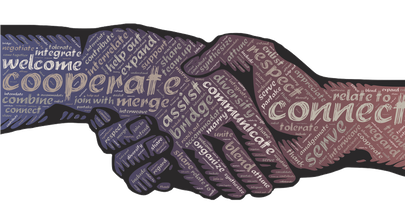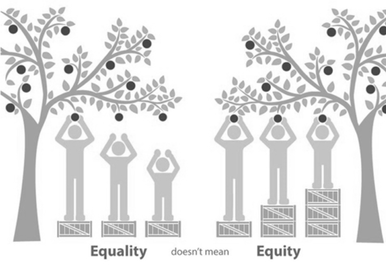|
If you are a professional or a writer who is passionate about health, racial, and social equity, consider contributing to our blog! Visit our Volunteer page to learn more. |
 We don’t often associate the built environment of our cities as having a major role in health outcomes but as the world’s populations become increasingly city dwelling, the impact of where people live work and play on their overall health is coming sharply into focus. Besides access to affordable health care, access to affordable housing and healthy food markets, and proximity to safe playgrounds, parks, sports fields and community spaces all play a role in contributing to people’s sense of well-being and their health outcomes. In other words, your zip code is more important than your genetic code in determining health outcomes!1,2 All around New York City there is an up-zoning and building frenzy in older neighborhoods, which is creating a mushrooming of highrise luxury towers without enough attention paid to community needs, particularly truly affordable housing. Older residents are being displaced, income inequality and segregation are exacerbated as neighborhood’s communities fragment and infrastructure is strained. Yes- new development is good, but how can it be made to be more forward-thinking? How can we develop strategies to make it more comprehensive, sustainable and resilient to climate change while addressing the communities’ needs? “Community Engagement” has now become a buzzword that is heard around several new development projects, particularly where public land is involved. Unfortunately, this engagement is usually superficial and is conducted in a top-down fashion by presenting already-formulated plans to the community after the “deal is done”.
Major change in our built environment needs to involve residents in a democratic process that gives communities more control over the fate of their neighborhoods. Governments and planners often don’t like that “interference”, but constructive relationships between communities and the government department of planning are necessary to lead to better, forward-thinking, equitable and sustainable public decisions. True community engagement enables better understanding of each community’s needs and aspirations and only makes sense as a collaborative approach. How do we effect change that brings community voices to the discussion table at early stages? How do we bring about change in thinking, change in “business as usual” practices, and change that makes elected government officials accountable to their voters? How do we bring about change to achieve greater social justice? This requires the coordinated effort of multiple stakeholders – including committed citizens, experts, community leaders and youth who care about their communities and civic responsibilities and hold their elected officials to account. While this is easier said than done, the solutions to overcome these barriers require new ways of thinking, innovation, commitment and cooperation of people in different sectors. At HEI, we provide a unique platform to bring together individuals and organizations as members. Unlike other professional networking organizations, HEI engages people from different areas and sectors with very different expertise and brings them to a common table to cross-fertilize ideas and brainstorm solutions. As the only organization that is multisectoral in its membership, HEI bridges the silos that usually separate multiple sectors and stakeholders. Bring the issues your neighborhood faces to the table – there is a space for anyone who cares and understand the importance of becoming involved in the design of our communities. Ref: 1) Bloch, J. (2013) https://www.baltimorebrew.com/2013/04/24/hopkins-conference-tackles-link-between-wealth-and-health/; 2) Graham, G.N.(2016). Why Your ZIP Code Matters More Than Your Genetic Code: Promoting Healthy Outcomes from Mother to Child. Breastfeeding Medicine. 396-397. About the Author: Dr. Alka Mansukhani is a board member and treasurer at Health Equity Initiative since its founding in 2011. She currently serves also as the organization’s Co-Vice President. Alka is actively involved in neighborhood development in Long Island City, Queens, where she lives. Read her full bio.
2 Comments
Richard
9/13/2023 06:14:21 am
nice blog
Reply
9/14/2023 05:32:06 am
You can get a chance to win a $1000 Money reward. By taking the Kohl's official survey at https://www.kohlsfeedback.page/survey.
Reply
Leave a Reply. |
Archives
June 2023
CategoriesEditors:
Renata Schiavo, PhD, MA, CCL Alka Mansukhani, PhD, MS Radhika Ramesh, MA Guest posts are by invitation only. |



 RSS Feed
RSS Feed
